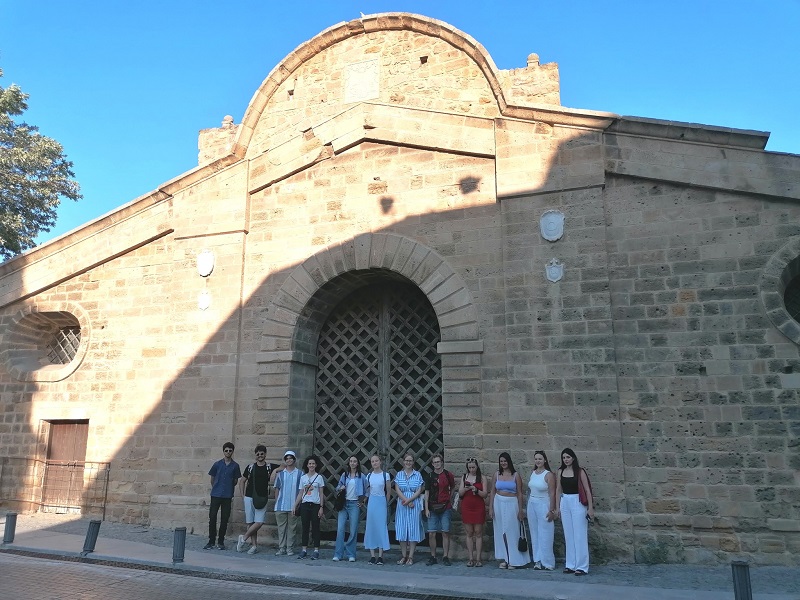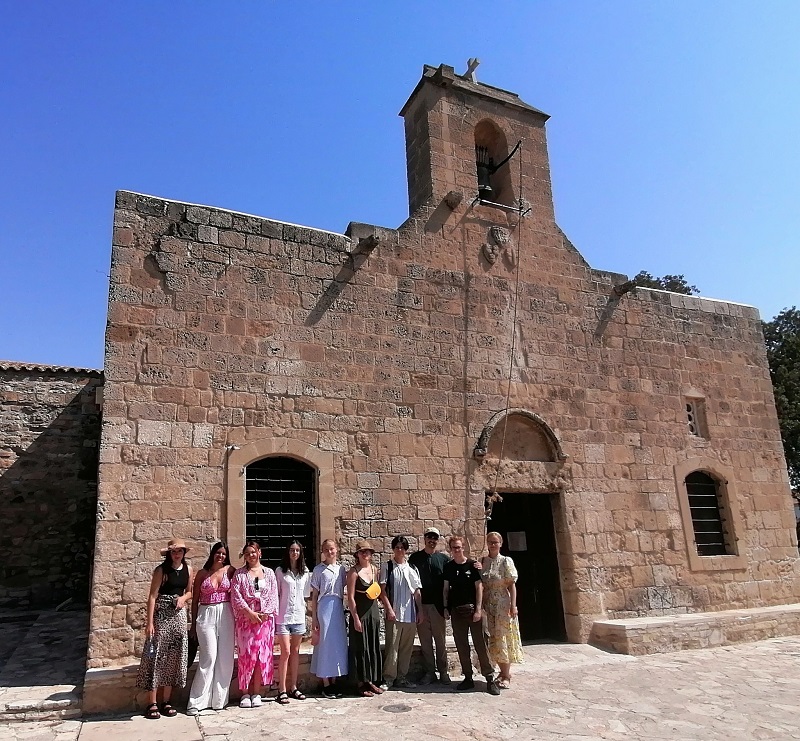For thousands of students arriving in Cyprus, mastering Greek is about more than just learning a language. It’s about belonging.
Since 1998, the School of Modern Greek at the University of Cyprus has welcomed over 6,500 people from around the world—international students, researchers, members of the Cypriot diaspora, Turkish Cypriots, migrants and refugees. Its mission: to teach Greek and, in doing so, to help people find their place in Cypriot society. “We don’t just teach grammar,” as one teacher explains, “we give people the tools to live, study and connect here.”
A classroom that reflects the world
Twice a year, more than 300 candidates sit the School’s national proficiency exams, a testament to its status as the island’s top institution for Greek language certification. The School is unique in the diversity of its student body. Its classes are a microcosm of global society, comprising students of different ethnicities, faiths, educational backgrounds and professions. Its learners include university students, academics, and skilled professionals.
The language courses offered equip students with the skills needed to navigate daily life, participate fully in Cypriot society, and access employment opportunities. These courses often serve as a stepping stone to further professional training or academic studies, or to roles that require proficiency in Greek. They play a vital role in the social integration of migrants, asylum seekers and refugees, with enrolments rising significantly in recent years.
Beyond language instruction, the School fosters a deep sense of belonging and intercultural empathy, turning Greek into a bridge between students’ cultural heritage and the Greek world.
Teachers who inspire
Behind its success is a team of 11 dedicated teachers, all specialists in teaching Greek as a second language. They design their own materials, carry out research, and support learners from absolute beginners to advanced speakers. Their commitment leaves a mark. “I never went to class with boredom,” wrote one scholarship student. “I went every day with joy and impatience because of the wonderful teaching methods.”

A summer that changes lives
The School’s Summer Scholarship Programme is perhaps its most transformative initiative. Each year, at least ten students from universities abroad are awarded scholarships that cover tuition, travel support, accommodation and an intensive cultural programme.
For six weeks, they study Greek in the classroom and experience Cyprus outside it. In fact, the School’s work goes far beyond textbooks. Students are encouraged to live the language through Cyprus itself. Cultural programmes include visits to archaeological sites, concerts, festivals and village excursions.
One student still recalls a trip to Lefkara: “I felt the Greek and Cypriot atmosphere. The people were warm, kind and open. Every excursion was wonderful.” Another summed it up simply: “The food, the new friends, the nights in Nicosia—these memories will stay with me forever.”
At this point, the Programme has proved so popular that demand now exceeds available places, while its impact on the participants is clear.
“During this month and a half, I fell in love with Cyprus,” one participant wrote, adding: “every day was unique. The hardest day was the day of my return, because I left my heart here.” Another group of students, in a farewell message to their guide and coordinator, captured the Programme’s spirit. “You didn’t just show us churches and old towns. You showed us lives long forgotten that were waiting to be discovered,” they wrote. “You made us feel at home. Even after we return, Cyprus will remain in our hearts forever.”
Reconnecting the Diaspora
The School also plays a central role in the NEPOMAK Discover Cyprus Programme, which brings young members of the Cypriot diaspora back to the island each summer. In partnership with the World Federation of Overseas Cypriots, the School offers three-week intensive language courses at beginner, intermediate and advanced levels.
Participants not only strengthen their Greek, but also dive into Cyprus’ history and culture through excursions, museum visits and community activities. For many, it is the first time they truly experience the land of their parents and grandparents.
More than words
The School of Modern Greek has become a symbol of what education can achieve when it goes beyond the classroom. For some, it leads to further studies at the University of Cyprus. For others, especially migrants and refugees, it opens the door to integration, friendship and opportunity.
At a time when language often divides, the School of Modern Greek shows that words can do the opposite: create empathy, build bridges and change lives.
For further information, please contact the School of Modern Greek, University of Cyprus at:
- Tel.: +357-22-892028
- Email: [email protected],
- Website: www.ucy.ac.cy/mogr.






Click here to change your cookie preferences